Professional comportment: Dilemma or delusion?
By Dr Y. Ratnayake
In the face of behaviour demonstrated by the so-called professionals, the gentry, in the recent past with regard to critical political paradigms in the country, it might be an interesting exercise to examine the meaning of the term ‘professional” in relation to the definitions given in the lexicons vis-à-vis the inferences or interpretations given to the same term through social usage. Apparently, social usage of the term is much broader than the definitions given in lexicons, as society in general uses the term to elevate the person referred to as a professional to a higher level of knowledge who comprehensively understands above all the fundamentals of social paradigms without being restricted to a narrow domain of a subject.
As the Illustrated Oxford Dictionary spells out, the noun “professional” has more than one specific meaning.
1. Of or belonging to or connected with a profession
2. Having or showing the skill of a professional.
The same source document explains the term professionalism as “the qualities or typical features of a profession or of professionals, esp. competence, skills, etc., which renders a meaningless description unless it is understood in congruence with the first definition. In broad sight, a professional is defined, in a specific and narrow frame, as a person who has achieved comprehensive knowledge in a given field of study over a lengthy period of time.
In view of the definitions given in the authentic sources on the subject, it can safely be construed, contrary to the social interpretation, that a professional is a subject specialist who may sometimes be completely oblivious to the different spectrums of other subjects that are not related to his or her chosen field of specialisation.
Professionals as Trailblazers:
Accordingly, the postulate that can be constructed on the basis of the aforesaid explanation profoundly leads to the logical question of whether the viewpoints expressed by professionals on different subjects, not related to their demarcated area of specialisation, have any practical validity in applying them as guidelines or trailblazers for decision-making and opinion formation by the laity in any society.
For example, it is virtually an unequivocal perception that, in 2024, an overwhelming majority of professionals—including, inter alia, doctors, engineers, IT specialists, and teachers—apparently believed, as indicated by the voting pattern in both the presidential and the parliamentary elections, in the ability of a particular political party to perform economic miracles within a period of six months once the new party established its own government. At elections, for that matter, the electorate is assumed to be making decisions and electing a government on the basis of promises made by contesting parties in their manifestoes, which is a ubiquitous phenomenon that can be observed in all the other countries in the world.
It is not a surprise at all that the beguiled laity, being ignorant of the economic fundamentals of the country in addition to suffering from political myopia, were enticed by the rainbow and pot of gold promises made at the political stage together with the abracadabra of supposed wonderful conjurors, but what is unimaginable is that the higher echelons of the nation, supposed to be professionals of the country, swallowed the political sophistry, hook, line and sinker, which is an extraordinary paradigm that goes beyond the comprehension of a logically thinking individual.
A significant majority of professionals in the country was, without doubt, lured by the promises which resulted in changing the government and shifting the country subsequently towards economic uncertainty. An examination of the promises, as cited below, used to ensnarl professionals and mobilise their support towards achieving a political agenda provides axiomatic evidence to support the initial postulate that professionals are a cluster of people that moves around in a beaten track zigzagging in a narrowly demarcated and rigidly designed subject enclave.
Theing pre-election promises offered by a particular political party to the gentry and the laity of the country in common were swallowed hook, line and sinker without scrutinising the likelihood of delivering the promises in the event that their desirable political party captures the political saddle of the country.
1. Bringing down the taxes on comestibles and medicine to the zero level.
2. Reduction of electricity tariff on domestic users by thirty percent.
3. Increase of purchase price of paddy to Rs. 130.00 per kg.
4. Providing employment opportunities to all unemployed graduates.
5. Facilitating the accessibility of a certain Japanese car model at Rs 1.2 million for middle class families and the other prospective buyers. (The list is innumerable and therefore lengthy.)
Furthermore, the so-called gentry also believed the wild allegation made on the political stage to the effect that a plane load of US dollars was secretly smuggled away from the country by the bigwig of the then-incumbent government and the stolen dollars would be returned to the country no sooner than the new government is sworn in after the election. The country’s so-called elites or gentry accepted the argument of the wingnut political party hands down that their political cohorts, the party vouched, are of different genesis who could never be corrupted, bribed, irrational or emotionally sensitive, a superhumanised human race, and therefore ensuring corruption-free governance under their rule. The carte blanche granted by the gentry unwittingly for the assurance given by the political party demonstrates that the professional standing of the so-called Pandith is of questionable reputation and on a shaky foundation. This particular habit of classifying the entire party supporters as a transhumanistic clan, as propagated by the wingnut political party honchos, was tacitly accepted by our professionals, a virtual bigotry, albeit that the very idea of segregating human beings on the “black and white” basis goes against the core foundation of all the sciences hitherto known to human society.
The behaviour of the Sri Lankan electorate, both gentry and the laity, is somewhat akin to a hallucination of a reader, entranced with a Harry Potter novel, believing that the characters in the novel are real and their magical performance, though beyond logical explanation and contrary to the basic physics laws, is still unpretentious. Is it a puerile expression if someone states that the Sri Lankan gentry, who quietly indicated their assent to the multifaceted sophistry presented by the novices to the field of economics or governing, are similar to the phantasm of Harry Potter’s connoisseurs? A general review of the academia and the performance of their associates tends to reveal that their talents are somewhat akin to those of the technicians, obviously with the grant of exceptions, and they have incarcerated themselves in a subject enclave with the least exposure to the knowledge spectrums that are external to the subject that they are well versed in. To be fair to the people of real professional timber and to abstain from the mistake of painting all with the same brush, it should be stated that some individuals, though they have specialised knowledge in specified subjects, have shown their remarkable capacity in expanding their boundary of knowledge over multidisciplinary subjects, demonstrating the real meaning of professional timber. For illustrating and justifying the contentious relationship, one may look at personalities like Martin Wickremasinghe, Gunadasa Amarasekara, Gunapala Malalasekara, Albert Einstein, Steve Jobs, Winston Churchill and so forth, who match in every respect the characteristics of polymaths, though some of them have only completed their primary education. In particular, though Einstein is a renowned physicist, he amply demonstrated the extensive knowledge he possessed by liberally writing, in addition to his magnum opus in the theory of relativity, on different facets of human behaviour, a non-hard science domain after all.
If the above assumption or the causality is not reasonable to somebody, then the most plausible alternative hypothesis is that the professionals were aware of the impracticability of the promises given at the elections, but they purposely chose the path of falsehood for hoodwinking the laity by prostituting their professional status to influence the direction of public opinion and thereby the voting pattern. A group of trollops?
Academic Credentials and Professionalism:
The professional groups referred to above, without any doubt, possess academic credentials earned or awarded by different educational institutions operating in diverse disciplines, but the pertinent question that puzzles the logical thinker is whether possession of academic credentials of different levels, such as degrees, masters and PhDs, can by themselves convert an ordinary person, in other words, soft timber, into professional timber, elevating him or her onto a higher wisdom status different from that of laity. The question sounds like an effort at attacking a hornets’ nest; nevertheless, the answer to the question is socially significant, though it tastes unpleasant for many supposed to be professionals, since the professionals are construed as the flagship that shows the direction a country should take apropos political choices and economic development strategy. Since the issue raised in this succinct article is socially sensitive and can cause violent responses in the form of innuendoes, the writer intentionally leaves the question open for the people with critical thinking capacity to paraphrase the issue based on their intellectual capacity rather than on the basis of their emotional impulse.
Academic credentials are awarded on the basis of a study, in most instances, conducted by a candidate which culminates with the submission of a paper in the form of a thesis or research anthology that is reviewed or evaluated by an academic board, in keeping with the prior established procedural benchmarks, a prerequisite for the award of qualification. Those who are in the know of the inner details of the degree awarding process are well aware that, as an animal can be skinned using more than one method, earning aa academic qualification can be materialized using manipulated methods some of which are not ethical, transparent and not accepted in terms of academic conventions and recognized procedure; nevertheless, the practice goes unabated right across the academic kingdoms that permeate over different subject spectrums.
An academic qualification, juxtapose PhD, irrespective of one’s subject specialisation, can be rightly considered as a capacity-building instrument that enables the person concerned to build heuristic capacity for observing a situation and then to contribute to widening the boundary of knowledge in a given subject with the conduct of a scientific analysis to reach a conclusion on the causal relationship among the variables that are examined under the referred academic undertaking. Irrespective of the particular subject area chosen for the study, the person engaged in the study must be able to extend the methodology employed or instrumentalised for one’s specific study to understand the complexities involved with any other social dilemma that requires a satisfactory solution.
However, what happened at the previously held elections was that a group of political novices openly boasted that they could overcome the economic woes of the country, similar to someone stating that the force of gravity can be negated, but the professionals, say engineers, who were in the audience approvingly bobbed their heads contrary to their anticipated professional response of questioning, for instance, the antigravity formula supposed to be in the possession of the braggers. To be more specific, if a cardiologist, while being engaged in a heart operation, tells all of a sudden his teammate that he does not know that there is another body organ called lungs located a few inches away from the heart, do you call him a professional cardiologist? The two examples cited above can easily be extended for analysing the political behaviour and the response of the gentry in Sri Lanka as regards the important political events that took place in 2024 without using the rocket science knowledge or burning midnight oil.
Inferences:
This short review comes to an end without a conclusion by the composer, but as final remarks, some words of wisdom borrowed from Waterman and Tom Peters, reputed management wizards of yore, are quoted for all logical thinking people to reach a conclusion on the article on my behalf.
The advice of the two management gurus is, “Be sceptical if someone offers a simple solution to a complex problem.”
In essence, the quote suggests that when a simple solution is presented for a complex issue, it's important to:
1. Question the assumptions behind it: What are the underlying beliefs or biases that support the simplicity?
2. Consider the potential consequences: What are the risks of implementing this simple solution, and what unanticipated consequences might arise?
3. Look for alternative or more nuanced solutions: Is there a more comprehensive approach that addresses the underlying complexity of the problem?
4. Verify the past track record and scrutinize the credentials of the solution provider as against the past and present global experience; perhaps some knowledge of physics in this context might ease the haze that blurs one’s vision.
Can the use of the term “professional” be justified to refer to the people who are so inept as to distinguish an ass from a horse or differentiate reality from fantasy?
(Dr. Y Ratnayake is a former director at the College of Banking and Finance, IBSL.)
-
Still No Comments Posted.




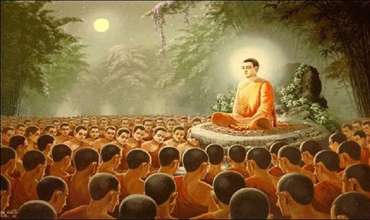

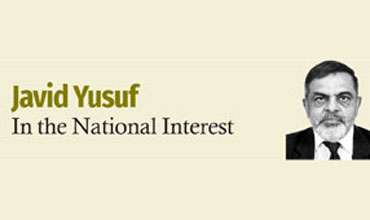

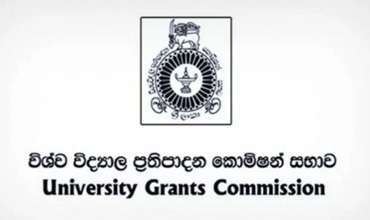
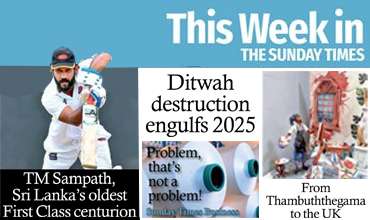
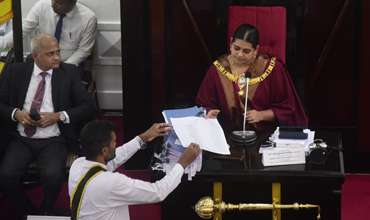
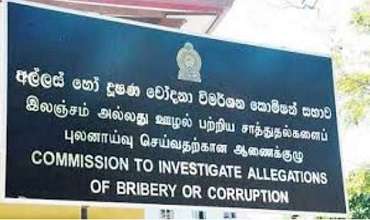
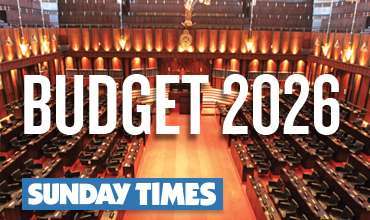
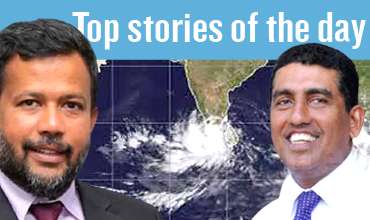
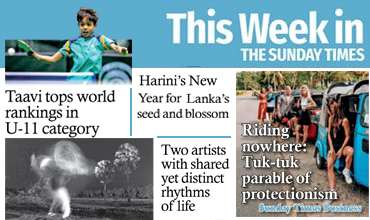
Leave Comments